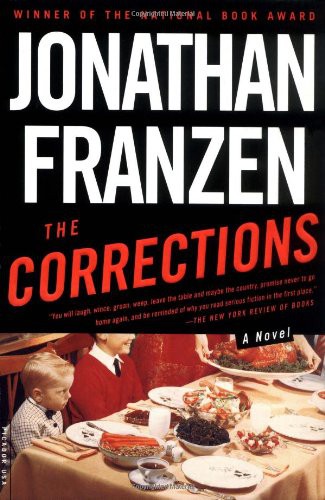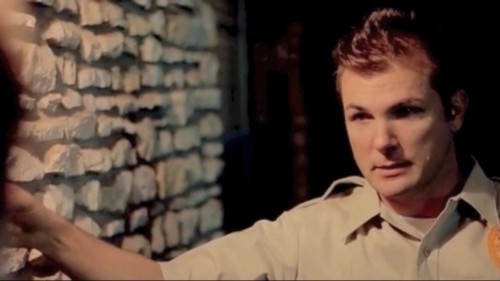
 Back in March, my Dad took a week away from work, and we spent spring break together in Southwest Florida. It was awesome. One of our oft-repeated tasks, along with eating fish and chips and baking in the sun, was combing through the nearest Barnes and Noble looking for beach reading. Dad happened to have Mom on the phone as we perused one night, so he told her what we were considering buying and asked for suggestions. She offered a few titles but finished with, “definitely don’t read The Corrections.”
Back in March, my Dad took a week away from work, and we spent spring break together in Southwest Florida. It was awesome. One of our oft-repeated tasks, along with eating fish and chips and baking in the sun, was combing through the nearest Barnes and Noble looking for beach reading. Dad happened to have Mom on the phone as we perused one night, so he told her what we were considering buying and asked for suggestions. She offered a few titles but finished with, “definitely don’t read The Corrections.”
I came across a hardcover copy of the Jonathan Franzen novel for $1 in a blowout used book sale a few weeks later. Naturally, I bought it without hesitation.
Corrections is an all-too honest depiction of modern American family life with themes of impending financial crises and the proliferation of over the counter anxiety and depression meds present throughout. He gets it pretty much spot on, and from his perspective, we don’t look too good. So, in hindsight, on a planned vacay with my dad designed partially around us talking about my future and having some solid father-son bonding time, I can see why she steered us away. But of course, I needed to find that out for myself.
The action of the novel centers on the Lamberts. The children think their parents messed up; thus, they assign them serious blame while failing to see their own glaring shortcomings. That’s the sad lot of this typical American family. Franzen suggests, often with irony, that we are products of our parents, inherently linked in all our behavioral idiosyncrasies – good, bad, embarrassing, whatever. Therefore, each member of the family lives both in the shadow of, and in reaction to, a painful upbringing, striving consciously in his/her own way to correct and improve where their parents went wrong.
As I read, I was reminded of Mason, Jr.’s third father in Richard Linklater’s Boyhood: Jim. The muscly, ex-military step-dad rails against Mason for not being the man he wants him to be. His advice, often delivered while drunk and angry, reveals his own entrapment in notions of honor, respect and correct living. He gets on Mason for painting his nails, lacking gratitude and breaking curfew. After one tirade, Jim turns to sit down on the porch and we see “Corrections” printed in bold on the back of his prison guard uniform. Linklater shows the audience that Jim, himself, is imprisoned, in impossible expectations of behavior and respect and in his struggle with PTSD from multiple tours of duty in Afghanistan. The Lambert family, too, is trapped in this notion of correcting past wrongs, doomed to bitterness and destructive forms of self-medication.
I talk to my siblings and friends like this all the time: “Geez, my parents are a drag. I’m totally going to do things differently when I have kids.” The message of correcting myself or succeeding where my parents failed becomes an attempt at control. When I say I want to do things differently from Mom and Dad, I’m choosing to measure myself against them. That’s limiting because it keeps me in the shallows – on the front porch arguing with Mason and Jim, in the liquor cabinet with Gary Lambert – far away from the depth of God’s love we can only encounter once we stop the nitpicking and realize our own overwhelming need for corrections – and more importantly, forgiveness.
Predictably enough, spring break had its hiccups. But I’ll never forget our early (for us) breakfasts, long walks to the water, and that Barnes and Noble.

COMMENTS
2 responses to “Trapped in The Corrections: Family Life in Franzen and Boyhood”
Leave a Reply














The Corrections reads more like a Paul Zahl sermon than any novel I can think of. And I mean that in a good (bad) way on both fronts. Nice post.
Love this, David. Makes me want to read the book! “Definitely don’t read” is infectious like that, I guess…